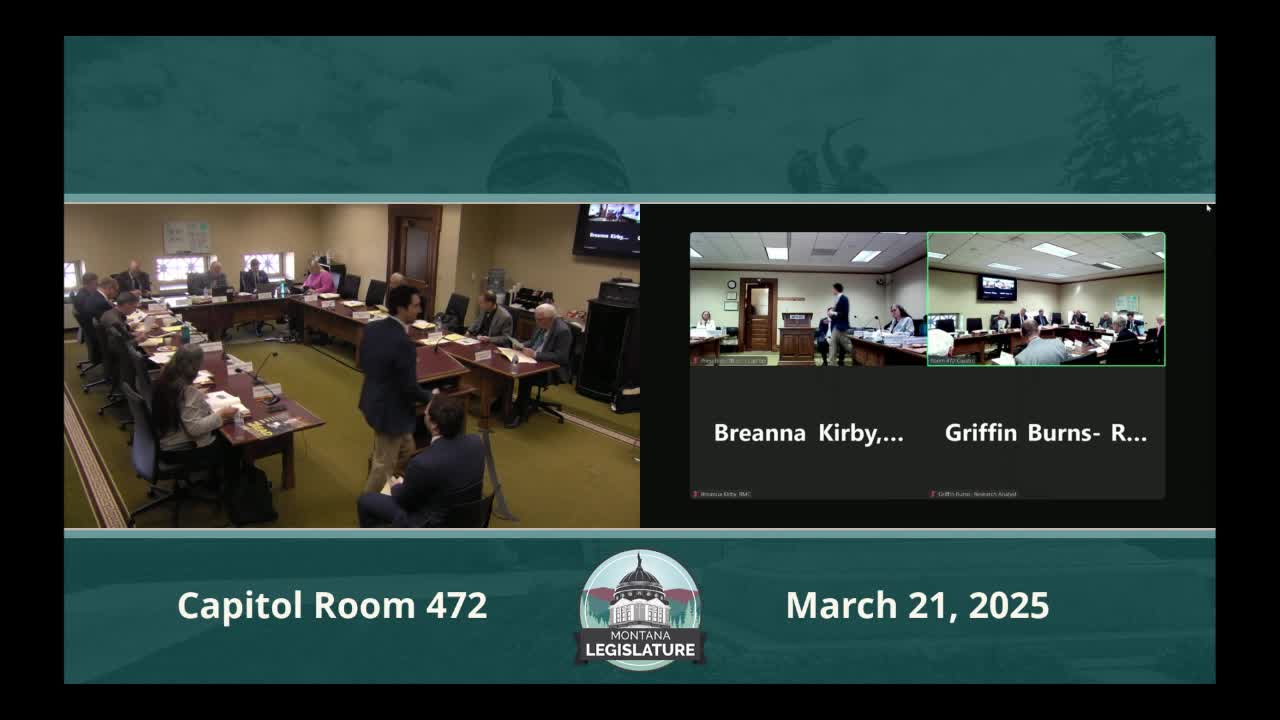Committee hears bill to bar remote "kill switches" on personally owned products without a warrant
Get AI-powered insights, summaries, and transcripts
Subscribe
Summary
Sen. Ken Bogner told the House Energy Committee Senate Bill 364 would prohibit companies from remotely disabling personally owned products without a warrant; the committee heard technical, consumer-protection and law-enforcement questions and a forthcoming amendment to exempt retail sales, leases and similar agreements.
Sen. Ken Bogner introduced Senate Bill 364 to the House Energy Committee, saying the bill would bar companies from remotely stopping or disabling an individual's personally owned product without a warrant. "Senate Bill 364 is establishing kill switch laws here in Montana," Bogner told the panel.
The bill defines a "kill switch" as a mechanism that can remotely shut down a product, accelerate battery drain or shorten software life. Bogner said an amendment is expected to add clarifying exemptions for sales and lease agreements: "There is an amendment that will be coming, to add a couple clarifying exemptions for sales and lease agreements. So please look for that, and I would appreciate your support on those."
Why it matters: The measure would affect vehicles and other connected devices that manufacturers or creditors can remotely control. Committee members pressed how the bill would interact with existing devices used in vehicle financing, law-enforcement requests to disable vehicles during criminal investigations, and safety-related automatic shutoffs in modern vehicles.
Industry and consumer testimony: An industry witness identified as Ms. Kuykendall described devices commonly called "starter interrupt" devices in subprime retail-installment auto contracts. She said the devices help some subprime borrowers obtain credit and can be overridden for emergencies. "We use starter interrupt devices, for prime borrowers to help them get credit they would not normally get... The device is installed in the vehicle, and it does allow the creditor to turn the vehicle off and turn it back on after they make their car payments," Kuykendall said. She added the auto industry is seeking an exemption for motor-vehicle financing and lease agreements so those devices can remain available to help borrowers rebuild credit.
Leasing and recurring-payment programs: Committee members asked whether leased items like phones would be covered. Bogner identified how the bill addresses recurring-payment programs: he said line 15 of the draft references recurring payment programs and that property is not "personally owned" until the lessee completes the buyout. That means many lease-to-own arrangements would remain subject to shutoff until ownership transfers.
Law enforcement and warrants: Members asked how the bill would affect law-enforcement requests to control vehicles during criminal investigations or pursuits. Bogner said the bill would require law enforcement to obtain a warrant before asking a manufacturer to activate a remote shutoff on a personally owned vehicle: "They have to go and get a warrant and have probable cause to do that." He said if a vehicle is leased the rules can differ.
Safety and automated shutdowns: Members pressed whether the bill could interfere with safety-related automatic systems that bring a vehicle to a stop if the driver is incapacitated. Bogner said the intent is not to prevent safety functions: "Currently with self-driving cars, they can sense if the driver gets incapacitated... that they're able to do that with this. And if they need to shut the car off because maybe there is an electrical fire, that they are able to do that with this current law." He advised that detailed technical behavior would be determined by vehicle manufacturers and purchase agreements.
Consumer notice and labeling: Committee members asked whether buyers should be notified if a device in a purchase or lease can be remotely controlled. Bogner said the bill as drafted does not require notice but he would consider adding a notice requirement depending on title constraints.
Closing: Bogner closed by saying the bill would protect individual control over personally owned property and prevent unauthorized shutdowns: "By prohibiting entities from remotely activating kill switches without a warrant, this bill prevents unauthorized shutdowns and ensures that individuals maintain control over their personal property." He asked for committee support and noted the pending amendment to clarify exemptions for retailers and lease agreements.
Ending: The hearing concluded with staff and members noting the expected amendment and taking no final action that day.
